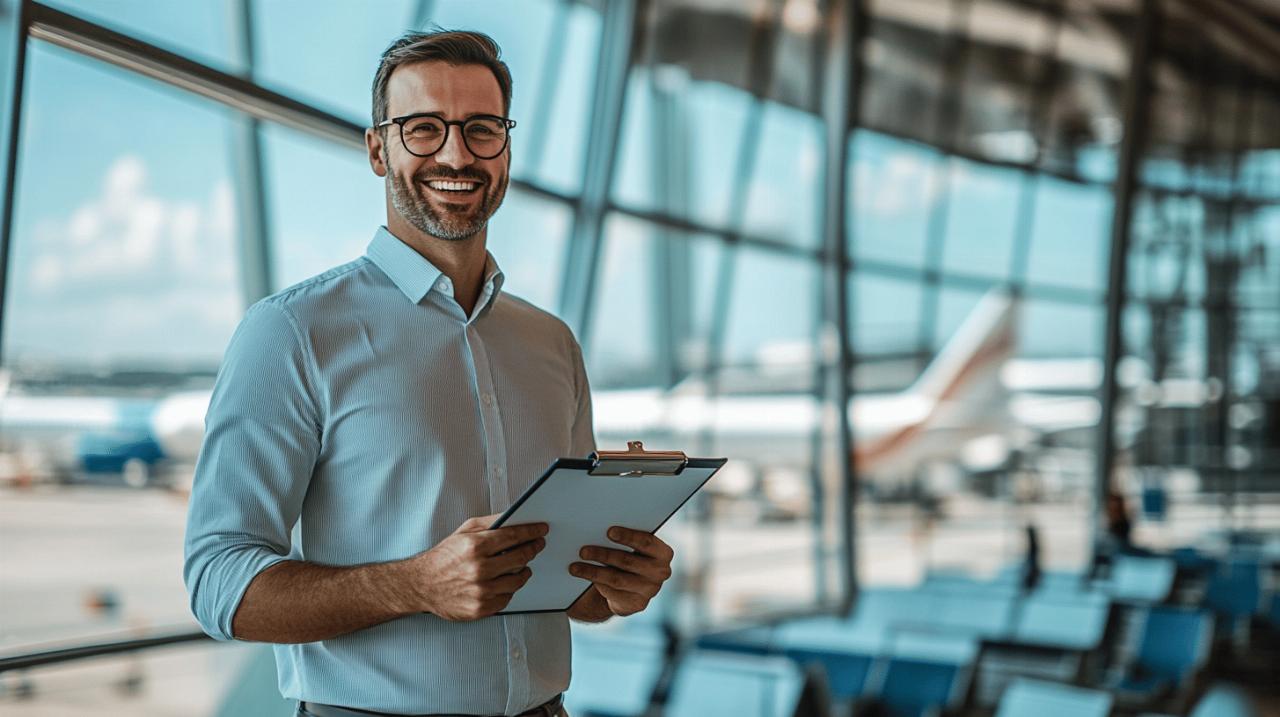Becoming a travel tester offers a unique opportunity to explore the world whilst contributing valuable insights to the tourism sector. Whilst it might sound like an endless holiday, the reality involves professional rigour, sharp observation, and a commitment to delivering honest assessments that help companies refine their offerings. Understanding what this role entails, the qualities required, and the practical steps to enter the field is essential for anyone considering this career path.
Understanding the Role: What Does a Travel Tester Actually Do?
The Mystery Client Approach: Evaluating Tourism Services from the Inside
At its core, the travel tester operates much like a mystery shopper within the tourism industry. Rather than simply enjoying a trip, these professionals immerse themselves in services to scrutinise every detail, from booking processes and customer service interactions to the quality of accommodation and the accuracy of destination information. The tester's job is to experience the service as an ordinary traveller would, but with an analytical mindset that captures both strengths and weaknesses. This covert evaluation ensures that companies receive unfiltered feedback about their operations. It is a role that requires discretion, as the effectiveness of the assessment often hinges on the tester remaining undetected. By evaluating travel consultants, tour operators, or hospitality providers, testers help organisations identify gaps in their service delivery and improve the overall customer experience.
Beyond the Holiday Snaps: The Professional Responsibilities of a Travel Tester
Whilst social media posts and travel photography might form part of showcasing one's experiences, the professional responsibilities of a travel tester extend far beyond capturing scenic landscapes. Detailed reporting is a cornerstone of the role. After each assignment, testers must compile comprehensive reports that articulate their observations clearly and concisely. This involves documenting everything from the efficiency of booking travel arrangements to the responsiveness of customer service representatives, the condition of facilities, and the accuracy of marketing materials. Testers must also assess how well travel agents or consultants demonstrate destination knowledge, organisational skills, and problem-solving abilities during client interactions. The ability to present findings in a structured, actionable format is crucial, as these reports directly influence business strategies and training programmes within the tourism industry. It is not enough to simply note dissatisfaction; testers must explain the root causes and suggest potential improvements.
Core skills and qualities every successful travel tester must possess
Observation, communication, and analytical thinking: the tester's toolkit
Sharp observation skills form the foundation of a successful travel tester's toolkit. This means noticing the finer details that might escape the average traveller, such as inconsistencies in communication from a travel consultant, lapses in attention to detail when handling travel documents, or subtle signs of poor time management within an agency. Communication skills are equally vital, as testers must convey their findings clearly and professionally, both in writing and sometimes verbally. A well-crafted report does not merely list complaints but explains the context, impact, and potential solutions. Analytical thinking allows the tester to move beyond subjective impressions and evaluate services against established benchmarks. For instance, understanding whether a travel agent's negotiation techniques or technology proficiency meet industry standards requires the tester to apply critical reasoning. Additionally, testers often evaluate how well agencies incorporate modern tools, such as AI integration for client management or effective social media strategies, which demands a solid understanding of current marketing strategies and digital trends.
Adaptability and resilience: thriving when travel plans go awry
Travel rarely unfolds without a hitch, and this unpredictability is precisely what makes adaptability and resilience essential qualities for a travel tester. Delays, cancellations, last-minute changes, or unexpected challenges are all part of the testing process. A tester must remain calm and objective, using these disruptions as opportunities to assess how well companies handle problem-solving and customer service under pressure. Resilience is not just about enduring inconvenience; it is about maintaining professionalism and continuing to gather valuable insights even when circumstances are less than ideal. This quality is particularly important when evaluating agencies or franchises that claim strong organisational skills and effective time management. A tester who becomes flustered or disengaged during setbacks cannot provide a fair or thorough evaluation. The ability to thrive in varying conditions, from luxury resorts to budget accommodations, and across diverse cultural contexts, further underscores the importance of flexibility and an open-minded approach.
Practical Pathways: How to Break Into the Travel Testing Industry
Building your profile: leveraging social networks and writing samples
 Breaking into the travel testing industry begins with establishing a credible and visible professional profile. Aspiring testers should focus on developing strong writing samples that demonstrate their ability to produce clear, engaging, and detailed reports. This might include blog posts, travel reviews, or even sample assessments of local hospitality services. Social media platforms offer an excellent avenue for showcasing photography, storytelling, and an understanding of marketing strategies within the tourism sector. However, it is important to balance personal flair with professional insight, as agencies and clients look for individuals who can combine creativity with analytical rigour. Networking within the tourism industry is also invaluable. Attending industry events, joining professional associations, and connecting with travel advisors, travel agents, and consultants can open doors to opportunities. Demonstrating knowledge of current trends, such as sustainable tourism practices or the integration of technology proficiency in reservation systems, can further strengthen a candidate's appeal. Building a portfolio that highlights customer service experience, attention to detail, and problem-solving skills will position aspiring testers as credible professionals.
Breaking into the travel testing industry begins with establishing a credible and visible professional profile. Aspiring testers should focus on developing strong writing samples that demonstrate their ability to produce clear, engaging, and detailed reports. This might include blog posts, travel reviews, or even sample assessments of local hospitality services. Social media platforms offer an excellent avenue for showcasing photography, storytelling, and an understanding of marketing strategies within the tourism sector. However, it is important to balance personal flair with professional insight, as agencies and clients look for individuals who can combine creativity with analytical rigour. Networking within the tourism industry is also invaluable. Attending industry events, joining professional associations, and connecting with travel advisors, travel agents, and consultants can open doors to opportunities. Demonstrating knowledge of current trends, such as sustainable tourism practices or the integration of technology proficiency in reservation systems, can further strengthen a candidate's appeal. Building a portfolio that highlights customer service experience, attention to detail, and problem-solving skills will position aspiring testers as credible professionals.
Finding opportunities: agencies, adverts, and application requirements
Opportunities for travel testers often arise through specialised agencies that connect testers with tourism companies seeking evaluations. Monitoring job adverts, both online and through professional networks, is essential. Some organisations, such as franchise locations or large travel consultancies, may advertise for testers directly, whilst others work through third-party agencies that manage assignments. Application requirements can vary, but most employers look for candidates with a proven track record in customer service, work experience in hospitality or tourism, and relevant qualifications or training programmes. Some may prefer candidates with certifications such as the Certified Travel Associate or GDS certifications, which demonstrate technical proficiency and industry knowledge. Entry-level positions in travel agencies or customer service roles can provide valuable experience and a pathway into testing. Apprenticeships in travel consultancy, for instance, offer structured training and practical exposure to booking travel, handling customer needs, and understanding the operational side of the industry. Being proactive, responsive, and demonstrating a genuine interest in improving travel services for other clients can significantly enhance one's chances of securing a position.
Compensation and Career Outlook: What Travel Testers Can Expect to Earn
Understanding pay structures: per-assignment rates and location factors
Compensation for travel testers is typically structured on a per-assignment basis, meaning earnings can fluctuate depending on the volume and nature of work undertaken. Rates vary widely based on the complexity of the assignment, the location being evaluated, and the duration of the trip. High-end resorts or international destinations may command higher fees than local or budget assignments. Some testers work as freelancers, negotiating their rates directly with clients or agencies, whilst others may be employed on a part-time or contract basis. It is worth noting that whilst the role offers the perk of travelling, expenses such as flights, accommodation, and meals are usually covered by the employer or client, meaning the tester's fee is separate from these costs. Salary expectations for entry-level testers are modest, often starting around figures comparable to junior roles in the travel industry, such as trainee travel consultants. However, experienced testers with a strong portfolio and reputation can command higher rates and more consistent work. Location factors also play a significant role; testers based in regions with a high concentration of tourism businesses or franchise locations may find more opportunities.
Balancing Passion and Profit: The Reality of a Travel Tester's Salary
Whilst the allure of exploring new destinations is a compelling aspect of the role, aspiring travel testers must approach the career with realistic expectations about income. Unlike salaried positions in travel agencies or consultancies, where annual earnings might rise steadily with experience, the freelance nature of travel testing can lead to periods of irregular income. Many testers supplement this work with other roles in customer service, sales techniques, or digital marketing, leveraging their skills across the broader tourism industry. For some, the intrinsic rewards of travel, the satisfaction of contributing to improved services, and the flexibility of the role outweigh the financial uncertainties. Others use travel testing as a stepping stone to more stable positions, such as travel advisors, consultants, or roles in sustainable tourism advocacy. Career progression in this field often involves building a reputation for thorough, reliable assessments, which can lead to higher-profile assignments, consultancy work, or even training and mentoring roles within the industry. Ultimately, success as a travel tester depends on balancing passion for travel with a pragmatic understanding of the financial realities and a commitment to continuous professional development.





